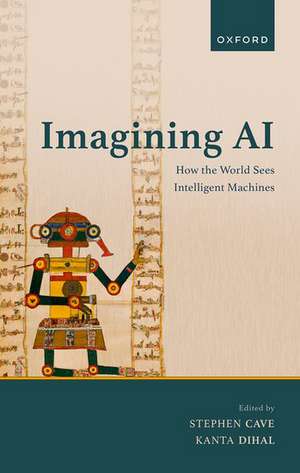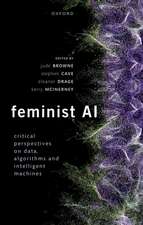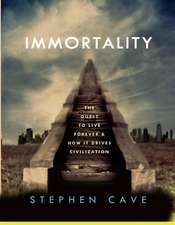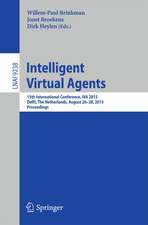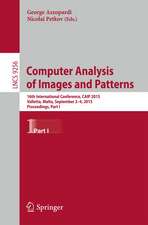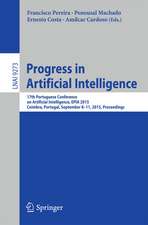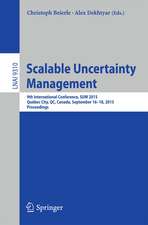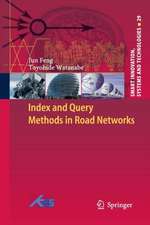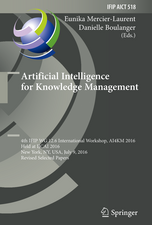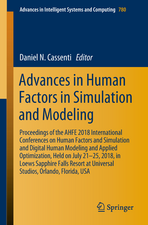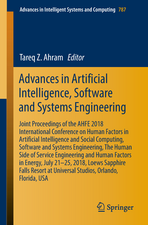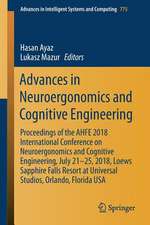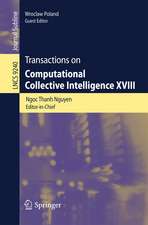Imagining AI: How the World Sees Intelligent Machines
Editat de Stephen Cave, Kanta Dihalen Limba Engleză Hardback – 25 mai 2023
Preț: 392.95 lei
Preț vechi: 604.12 lei
-35% Nou
Puncte Express: 589
Preț estimativ în valută:
75.20€ • 78.22$ • 62.08£
75.20€ • 78.22$ • 62.08£
Carte disponibilă
Livrare economică 11-17 martie
Preluare comenzi: 021 569.72.76
Specificații
ISBN-13: 9780192865366
ISBN-10: 0192865366
Pagini: 448
Ilustrații: 14 b/w and colour images
Dimensiuni: 144 x 222 x 26 mm
Greutate: 0.74 kg
Editura: OUP OXFORD
Colecția OUP Oxford
Locul publicării:Oxford, United Kingdom
ISBN-10: 0192865366
Pagini: 448
Ilustrații: 14 b/w and colour images
Dimensiuni: 144 x 222 x 26 mm
Greutate: 0.74 kg
Editura: OUP OXFORD
Colecția OUP Oxford
Locul publicării:Oxford, United Kingdom
Recenzii
Ranging between philosophy and the humanities to sociology, anthropology and IT, this valuable book not only complements the interdisciplinarity traditionally favoured within cybernetics but also seeks to decolonize the field and emphasize the global futures of AI.
Using AI for human flourishing requires better understanding of the global conditions in which the technologies might be deployed and the social values that can emerge from varying cultural contexts. Imagining AI ably brings together scholars, artists, and more into a momentous contribution to scholarship on AI and society.
Stories are important indicators of the future. This timely contribution provides a rich basis from which to understand the long global narrative history of AI beyond the anglophone west. This powerful book will be of interest to scholars and publics alike when envisioning a future with AI across cultures.
An invaluable resource not only for novice and veteran AI scholars but also for students and experts in the humanities, social sciences, and psychology... Many libraries' collections could benefit from a seminal work like Imagining AI: How the World Sees Intelligent Machines, an essential contribution to a thriving interdisciplinary conversation about AI and intelligent machines... AI experts and scholars will appreciate the wealth of perspectives and lenses that come with global AI narratives
Using AI for human flourishing requires better understanding of the global conditions in which the technologies might be deployed and the social values that can emerge from varying cultural contexts. Imagining AI ably brings together scholars, artists, and more into a momentous contribution to scholarship on AI and society.
Stories are important indicators of the future. This timely contribution provides a rich basis from which to understand the long global narrative history of AI beyond the anglophone west. This powerful book will be of interest to scholars and publics alike when envisioning a future with AI across cultures.
An invaluable resource not only for novice and veteran AI scholars but also for students and experts in the humanities, social sciences, and psychology... Many libraries' collections could benefit from a seminal work like Imagining AI: How the World Sees Intelligent Machines, an essential contribution to a thriving interdisciplinary conversation about AI and intelligent machines... AI experts and scholars will appreciate the wealth of perspectives and lenses that come with global AI narratives
Notă biografică
Stephen Cave is Director of the Leverhulme Centre for the Future of Intelligence at the University of Cambridge. His research focuses on philosophy and ethics of technology, particularly AI, robotics and life-extension. He is the author of Immortality (Crown, 2012), a New Scientist book of the year, and Should We Want To Live Forever (Routledge, 2023); and co-editor of AI Narratives (Oxford University Press, 2020) and Feminist AI (Oxford University Press, 2023). He writes widely about philosophy, technology and society, including for the Guardian and Atlantic. He also advises governments around the world, and has served as a British diplomat.Dr Kanta Dihal is a Senior Research Fellow at the Leverhulme Centre for the Future of Intelligence, University of Cambridge. Her research focuses on science narratives, particularly those that emerge from conflict. She was Principal Investigator on the project 'Global AI Narratives' from 2018-2022, and currently works on 'Desirable Digitalisation', which investigates intercultural perspectives on AI and fundamental rights and values. She is co-editor of the books AI Narratives (2020) and Imagining AI (2022) and has advised the World Economic Forum, the UK House of Lords, and the United Nations. She holds a DPhil from Oxford on the communication of quantum physics.
